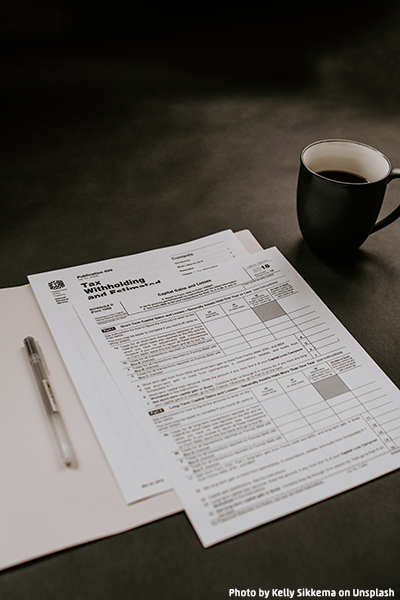
Extension of Local Tax Deadlines
By: Atty. Rodel C. Unciano
"In line with Section 4(Z) of Republic Act 11469 or the “Bayanihan to Heal As One Act”, authorizing the President to move statutory deadlines and timelines for the payment of taxes, fees and other charges required by law, the Department of Finance, through Department Circular (DC) No. 002-2020, extended the deadlines for the payment of taxes, fees, and charges imposed by LGUs as of March 25, 2020 to June 25, 2020."
Under our present tax laws, the Local Government Code of 1991 (LGC) provides timeline for the payment of local taxes, fees and charges as well as timeline for payment of real property taxes. In accordance with the provisions of the LGC, Local Government Units (LGUs) in turn have to enact an ordinance governing local taxation in their respective territorial jurisdictions.
 Section 167 of the 1991 LGC mandates the payment of all local taxes, fees, and charges within the first twenty (20) days of January or of each subsequent quarter, as the case may be. For the time of payment of RPT, Section 250 of the same law provides payments for basic real property tax without interest in four (4) equal installments: the first installment to be due and payable on or before the thirty-first (31st) of March; the second installment, on or before the thirty (30th) of June; the third installment, on or before the thirtieth (30th) of September; and the last installment on or before the thirty-first (31st) of December.
Section 167 of the 1991 LGC mandates the payment of all local taxes, fees, and charges within the first twenty (20) days of January or of each subsequent quarter, as the case may be. For the time of payment of RPT, Section 250 of the same law provides payments for basic real property tax without interest in four (4) equal installments: the first installment to be due and payable on or before the thirty-first (31st) of March; the second installment, on or before the thirty (30th) of June; the third installment, on or before the thirtieth (30th) of September; and the last installment on or before the thirty-first (31st) of December.
In line with Section 4(Z) of Republic Act 11469 or the “Bayanihan to Heal As One Act”, authorizing the President to move statutory deadlines and timelines for the payment of taxes, fees and other charges required by law, the Department of Finance, through Department Circular (DC) No. 002-2020, extended the deadlines for the payment of taxes, fees, and charges imposed by LGUs as of March 25, 2020 to June 25, 2020. As a result of the extension, no interest, surcharge or any form of penalty shall be applied on any local tax, fee or charge accruing on or due and demandable during the extension period.
The question now at hand is whether RA 11469 and DC 002-2020 will suffice to authorize extension of local tax deadlines without the enactment of an LGU’s local tax ordinance?
In a case promulgated on October 25, 2005, the Supreme Court has ruled that reference to a local tax ordinance is vital, for the power of LGUs to impose loca l taxes is exercised through the appropriate ordinance enacted by the Sanggunian of the LGU concerned, and not through the Local Government Code alone. The High Court ruled that what determines tax liability is the tax ordinance, the Local Government Code being the enabling law for the local legislative body.
l taxes is exercised through the appropriate ordinance enacted by the Sanggunian of the LGU concerned, and not through the Local Government Code alone. The High Court ruled that what determines tax liability is the tax ordinance, the Local Government Code being the enabling law for the local legislative body.
Apparently, this pronouncement is consistent with the basic principle on the legislative nature of local taxation, which is similar with national taxation. This is likewise consistent with Section 132 of the LGC which vests upon the local Sanggunian of an LGU the power to impose a tax, fee, or charge or to generate revenue through an appropriate ordinance.
Note that the LGC requires an ordinance and not merely a resolution. In GR No. 156684, the Supreme Court has ruled that the terms ordinance and resolution are not synonymous. An ordinance is a law, but a resolution is merely a declaration of the sentiment or opinion of a lawmaking body on a specific matter. An ordinance possesses a general and permanent character, but a resolution is temporary in nature.
Going through existing jurisprudence and the provisions of the LGC, which is the mother law of all our local tax laws, the requirement on the enactment of an ordinance on the imposition of taxes or enactment of a revenue measure is clear. However, for the sole purpose of extending tax payments without the imposition of a new tax measure, is the enactment of an ordinance likewise required?
To my mind, logic dictates that enactment of a revenue measure carries with it the determination of timeline within which to collect the revenue. Ergo, it may be argued that the timeframe within which to collect local taxes requires the enactment of an ordinance by the concerned local Sanggunian. Consequently, the extension of time for collecting the said taxes must likewise be authorized through an ordinance. This is in fact consistent with the provision of Section 167 of the Local Government Code (LGC) of 1991 which provides that the Sanggunian concerned may, for a justifiable reason or cause, extend the time for payment of taxes, fees, or charges without surcharges or penalties.
Truly, the extension of local tax deadlines under RA 11469 and under DC 2-2020 have given taxpayers a great sigh of relief. However, consistent with the provisions of the LGC and existing jurisprudence, it would be of best interest of the taxpayers if LGUs would be able to enact an ordinance in their respective territorial jurisdictions echoing the government’s directive to extend local tax deadlines.
The author is a partner of Du-Baladad and Associates Law Offices (BDB Law), a member-firm of WTS Global.
The article is for general information only and is not intended, nor should be construed as a substitute for tax, legal or financial advice on any specific matter. Applicability of this article to any actual or particular tax or legal issue should be supported therefore by a professional study or advice. If you have any comments or questions concerning the article, you may e-mail the author at This email address is being protected from spambots. You need JavaScript enabled to view it. or call 8403-2001 local 140.



